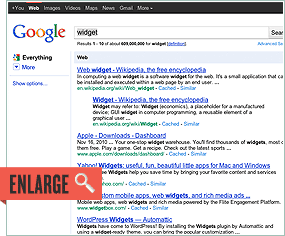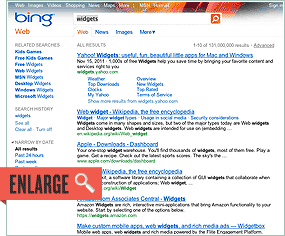Take a look at any search results page and you'll find the answer to why search marketing has a long, healthy life ahead.
There are, on average, ten positions on the search results page. The pages that fill those positions are ordered by rank. The higher your page is on the search results page, the better your click-through rate and ability to attract searchers. Results in positions 1, 2, and 3 receive much more traffic than results down the page, and considerably more than results on deeper pages. The fact that so much attention goes to so few listings means that there will always be a financial incentive for search engine rankings. No matter how search may change in the future, websites and businesses will compete with one another for this attention, and for the user traffic and brand visibility it provides.
Constantly Changing SEO
When search marketing began in the mid-1990s, manual submission, the meta keywords tag, and keyword stuffing were all regular parts of the tactics necessary to rank well. In 2004, link bombing with anchor text, buying hordes of links from automated blog comment spam injectors, and the construction of inter-linking farms of websites could all be leveraged for traffic. In 2011, social media marketing and vertical search inclusion are mainstream methods for conducting search engine optimization. The search engines have refined their algorithms along with this evolution, so many of the tactics that worked in 2004 can hurt your SEO today.
The future is uncertain, but in the world of search, change is a constant. For this reason, search marketing will continue to be a priority for those who wish to remain competitive on the web. Some have claimed that SEO is dead, or that SEO amounts to spam. As we see it, there's no need for a defense other than simple logic: websites compete for attention and placement in the search engines, and those with the knowledge and experience to improve their website's ranking will receive the benefits of increased traffic and visibility.
➤To Chapter 4 ⏪
➤To Chapter 4 ⏪
Written by Rand Fishkin and Moz Staf











0 comments:
Post a Comment
Dear Visitor
For coming to this site
Thank you